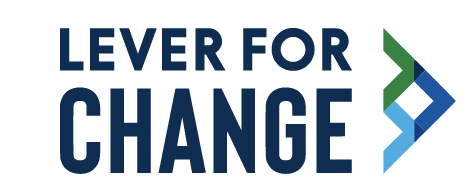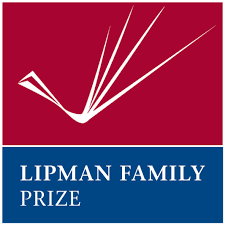The toolkit team
The 2023 High Impact Giving Toolkit was produced by a multi-disciplinary team, comprised of:
Kelly Andrews, MLA, Director of Knowledge Management & Marketing; Neha Butala, MSW, Associate Director of Engagement & Learning; Ariel Censor, Communications Manager, Daria Hurley, MSW, Applied Research Assistant, Haoyan Lin, MSEd candidate, Applied Research Assistant; Carol McLaughlin, MD, Senior Advisor; Katherina Rosqueta, MBA, Founding Executive Director; Jymere Stillis-Stanford, MSW Field Student; Tamla Tinsley, Program Coordinator; Benjamin Wanjura, MLA candidate, Applied Research Assistant; Jin Ye, Applied Research Assistant
This working team benefits from the guidance and financial support of the Center for High Impact Philanthropy’s Board of Advisors:
Julie Franklin, co-chair, Barry Porter, co-chair, Tim Fazio, Judy Friedman, Rob Kaufold, Gary Kiang, Danisha Patel, Monica Sasson, and Patricia Silvers.
Our home school
Our home school, Penn’s School of Social Policy & Practice (SP2), is dedicated to the passionate pursuit of social innovation, impact and justice. Together with a worldwide network of global collaborators, SP2 is advancing knowledge that drives justice, equity, and social innovation in a range of critical areas such as homelessness, health equity, social innovation, and more.
CHIP’s work benefits from the involvement of faculty, staff, and students at SP2. We are especially appreciative of partnerships with researchers and practitioners at the Center for Guaranteed Income Research; the Field Center for Children’s Policy, Practice & Research; and Actionable Intelligence for Social Policy.
Our institutional partners
Fidelity Charitable has served as the longtime platinum sponsor of the toolkit. Thanks to Fidelity Charitable’s generous financial support, our team is able to make the entire toolkit and downloadable PDF free for anyone interested in using these tools to create greater social impact with their giving.

Fidelity Charitable
Fidelity Charitable is an independent public charity that has helped donors support more than 328,000 nonprofit organizations with $51 billion in grants. Established in 1991, Fidelity Charitable launched the first national donor-advised fund program. The mission of the organization is to grow the American tradition of philanthropy by providing programs that make charitable giving accessible, simple, and effective.
The nonprofit exemplars included in this toolkit were sourced from the following organizational partners. All bring rich networks and share our team’s commitment to ensuring philanthropic funds create greater social impact. Before requesting any additional information from the nonprofits we profiled, our team leveraged the extensive due diligence already conducted by these partner organizations, along with relevant publicly available information.

GreenLight Fund
The GreenLight Fund is a national nonprofit that partners with communities to create opportunities for individuals and families to move out of poverty. It facilitates a community-driven process that matches local needs not met by existing programs to organizations with track records of success elsewhere. https://greenlightfund.org/

Lever for Change
Lever for Change, founded as a nonprofit affiliate of the John D. and Catherine T. MacArthur Foundation in 2019, has influenced more than $800 million in grants and provided support to more than 140 organizations to date. Lever for Change leverages investments in solutions to the world’s biggest problems — from racial and gender equity to climate change. https://www.leverforchange.org/

The Barry & Marie Lipman Family Prize
The Barry & Marie Lipman Family Prize is an annual global prize that celebrates leadership and innovation in the social sector with an emphasis on impact and transferability of practices. Administered by the Wharton School on behalf of the University of Pennsylvania, the Prize is committed to resourcing and connecting change-makers to bring innovative ideas to new places and problems around the world. https://lipmanfamilyprize.wharton.upenn.edu/
Individual acknowlegments
We would like to thank the following individuals who shared their expertise, offered insights, connected us to others, or provided feedback on this project:
Ann Marie Almeida, CAMFED
Tony Bowen, Fidelity Charitable
Scott Callan, The GroundTruth Project
Benjamin Cloutier, Project ECHO, University of New Mexico
Lauren Fox, LIFT
Patrick Hare, National Geographic Society
Harshvardan, CDD India
Heather Hawkins, Project ECHO, University of New Mexico
Dafne Jacobs, FreeFrom
KristinAnn Janishefski, The Literacy Lab
Casey Johnson, GreenLight Fund
Gertrude Kabwazi, Yamba Malawi
Elaine Martyn, Fidelity Charitable
Kim McCall, Yamba Malawi
Markita Morris-Louis, Compass Working Capital
Angeline Murimirwa, CAMFED
Jithin Nedumala, Make a Difference
Aditi Pandey, CDD India
Sumedha Pandit, Make A Difference
Sonya Passi, FreeFrom
Priya Puttaswamy, Make a Difference
Jessica Sager, All Our Kin
Gabe Scheck, LIFT
Miriam Shark, Campaign for Grade Level Reading
Ralph Smith, Campaign for Grade Level Reading
Jimmy Stuart, Compass Working Capital
Jeff Ubois, Lever for Change
Thanks as well to our colleagues at the University of Pennsylvania for their insights and collaboration throughout the year:
Dr. Sara S. Bachman, Dean,
School of Social Policy & Practice
Dr. Amy Castro Baker, Professor,
School of Social Policy & Practice
Dr. Dennis Culhane, Professor,
School of Social Policy & Practice
Kristen de Paor, Associate Dean,
School of Social Policy & Practice
Dr. Johanna Greeson, Managing Faculty Director,
The Field Center for Children’s Policy,
Practice & Research
Umi Howard, McNulty Leadership Program,
The Wharton School
Kimberly Leichtner, Lipman Family Prize,
The Wharton School
Dr. Ioana Marinescu, Associate Professor,
School of Social Policy & Practice
Tunisia Meek, Lipman Family Prize,
The Wharton School
Bart Miltenberger, School of Social Policy & Practice
Euria Min, Lipman Family Prize, The Wharton School
Juliana Rosati, School of Social Policy & Practice
Kristina Garcia Wade, University Communications
Sarah Wasch, The Field Center for Children’s Policy,
Practice & Research.
